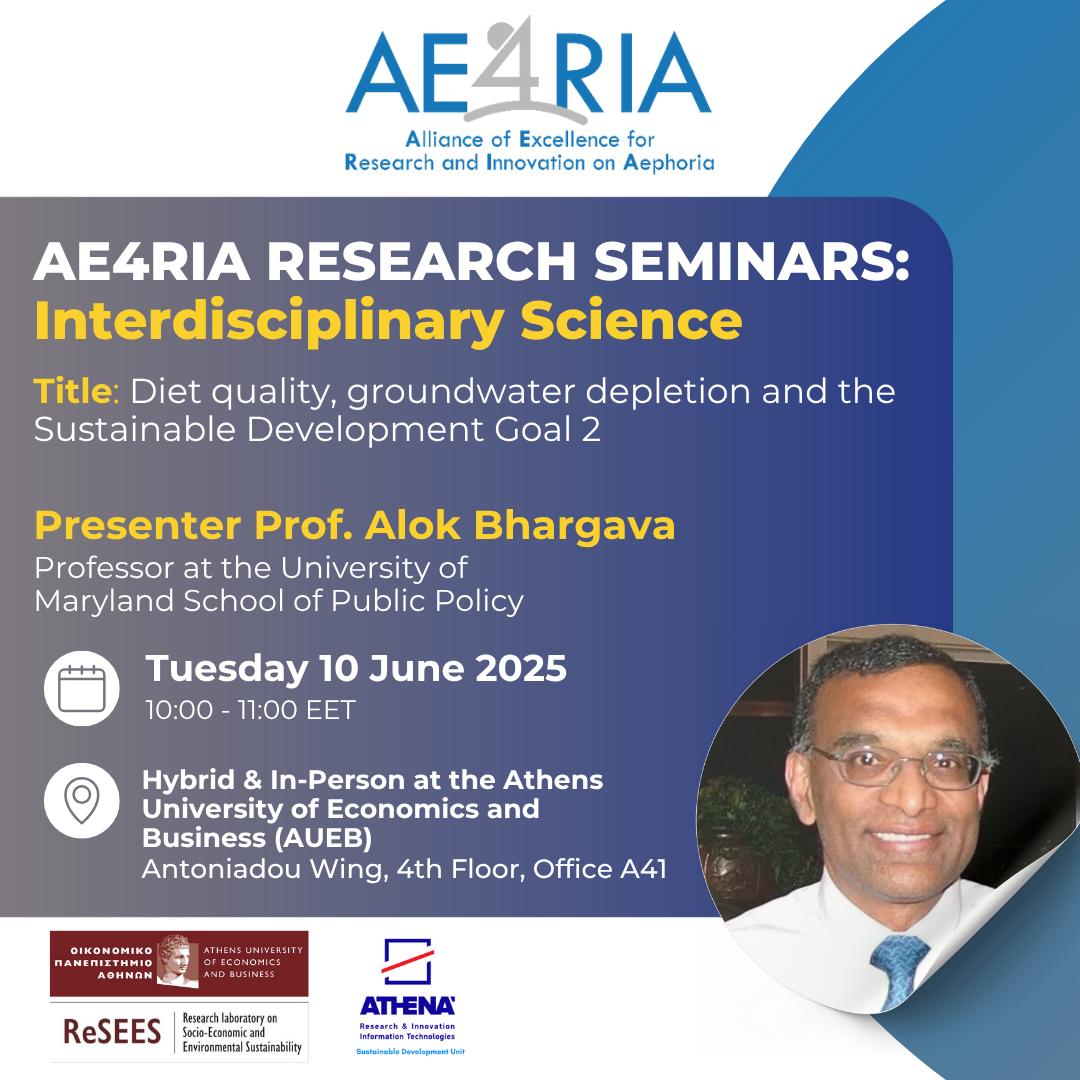AE4RIA Research Seminar: Diet quality, groundwater depletion and the Sustainable Development Goal 2

8th Seminar on 10/06/2025. The AE4RIA Research Seminar Series, a webinar organised by Resees, Research Laboratory AUEB and Sustainable Development Unit – ATHENA RC, hosted by Prof. Dr. Phoebe Koundouri. This series is dedicated to exploring cutting-edge, interdisciplinary research at the intersection of Economic, Social, and Natural Systems. Bringing together leading academics, each seminar aims to address pressing global challenges and provide valuable insights to guide the transition towards sustainable growth.
Date: 10 June 2025
Time: 10:00 – 11:00 EET
Format: Hybrid & In-Person at the Athens University of Economics and Business, Room A41
Topic: Diet quality, groundwater depletion and the Sustainable Development Goal 2
Presenter: Prof. Alok Bhargava, Professor at the University of Maryland School of Public Policy
Abstract:
The United Nations Sustainable Development Goal 2 underscores the need for eliminating hunger, improving nutrition, and promoting sustainable agriculture. This paper assessed sustainable production of staple crops using data from India, taking in account transpiration efficiency and groundwater depletion that are critical in the wake of climate change. Moreover, it is essential to monitor glacier thicknesses reflecting water storage, tackling methodological aspects in analyzing glacier height changes from remote sensing signals. First, the analysis of data on production of rice, wheat, maize, sorghum, and pearl millet for 310 districts in India during 2000-2016, using dynamic random effects models, showed that greater rice output was significantly associated with higher well depths. Second, milk production was positively associated with well depths indicating the need for higher water utilization for improving diet quality. Third, an analysis of remote sensing data on changes in glacier heights for 0.5o x 0.5o grids in the Northern hemisphere indicated large and significant declines over time. Signal processing techniques apparently induced trends in the means and variances of the series; glacier thickness reductions were generally small using in situ data. Overall, the empirical results can facilitate evidence-based policies for tackling the "zero hunger" goal, cultivating water-efficient crops for sustainable agriculture, recharging groundwater, and monitoring glaciers for enhancing food security and improving diet quality.
Join us online: Zoom Link
Meeting ID: 813 8508 7341
Passcode: 953471
Ημερολόγιο εκδηλώσεων
| S | M | T | W | T | F | S |
|---|---|---|---|---|---|---|
|
1 |
2 |
3 |
4 |
5 |
6 |
7 |
|
8 |
9 |
10 |
11 |
12 |
13 |
14 |
|
15 |
16 |
|
18 |
19 |
20 |
21 |
|
22 |
23 |
24 |
25 |
26 |
27 |
28 |